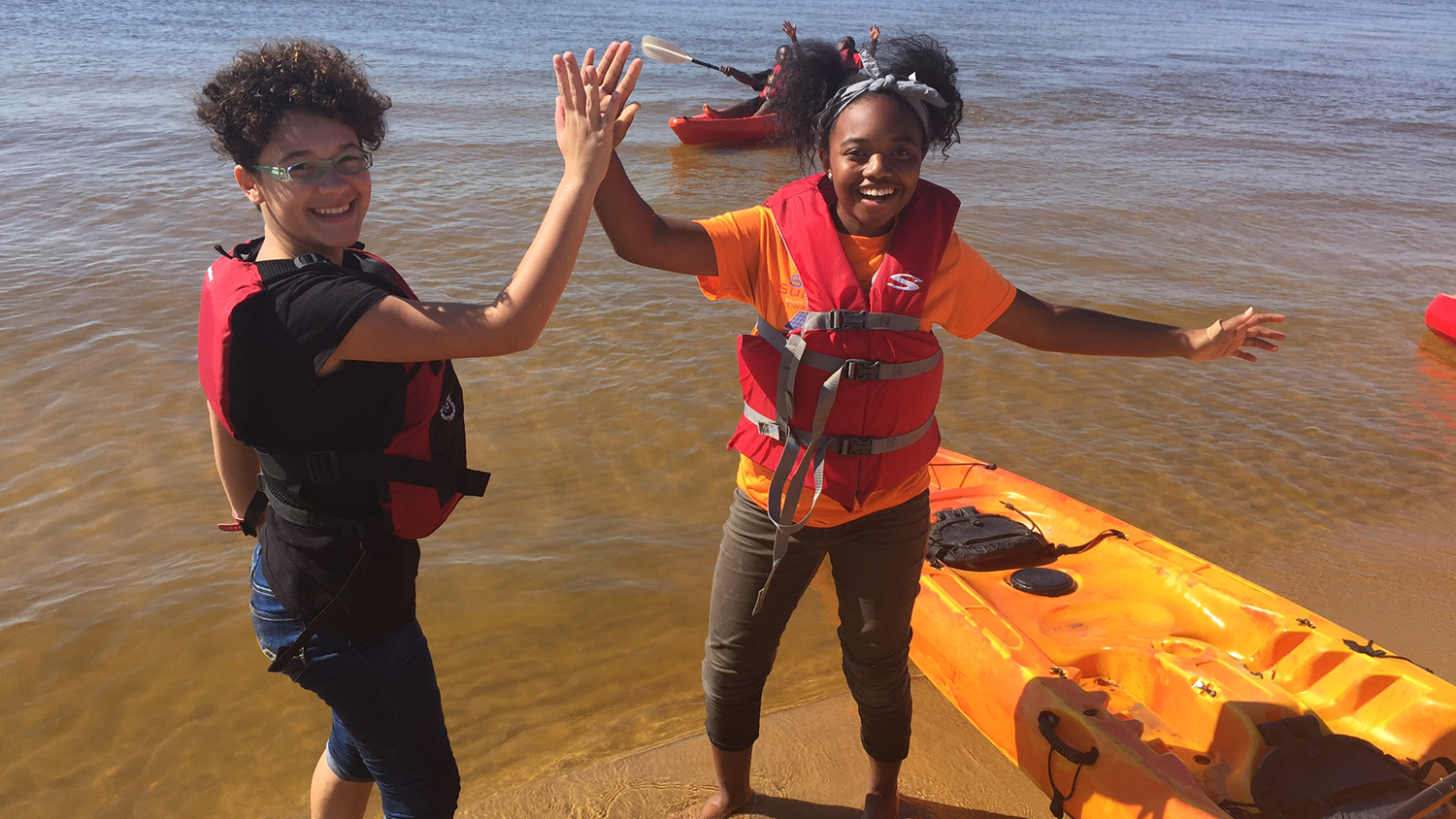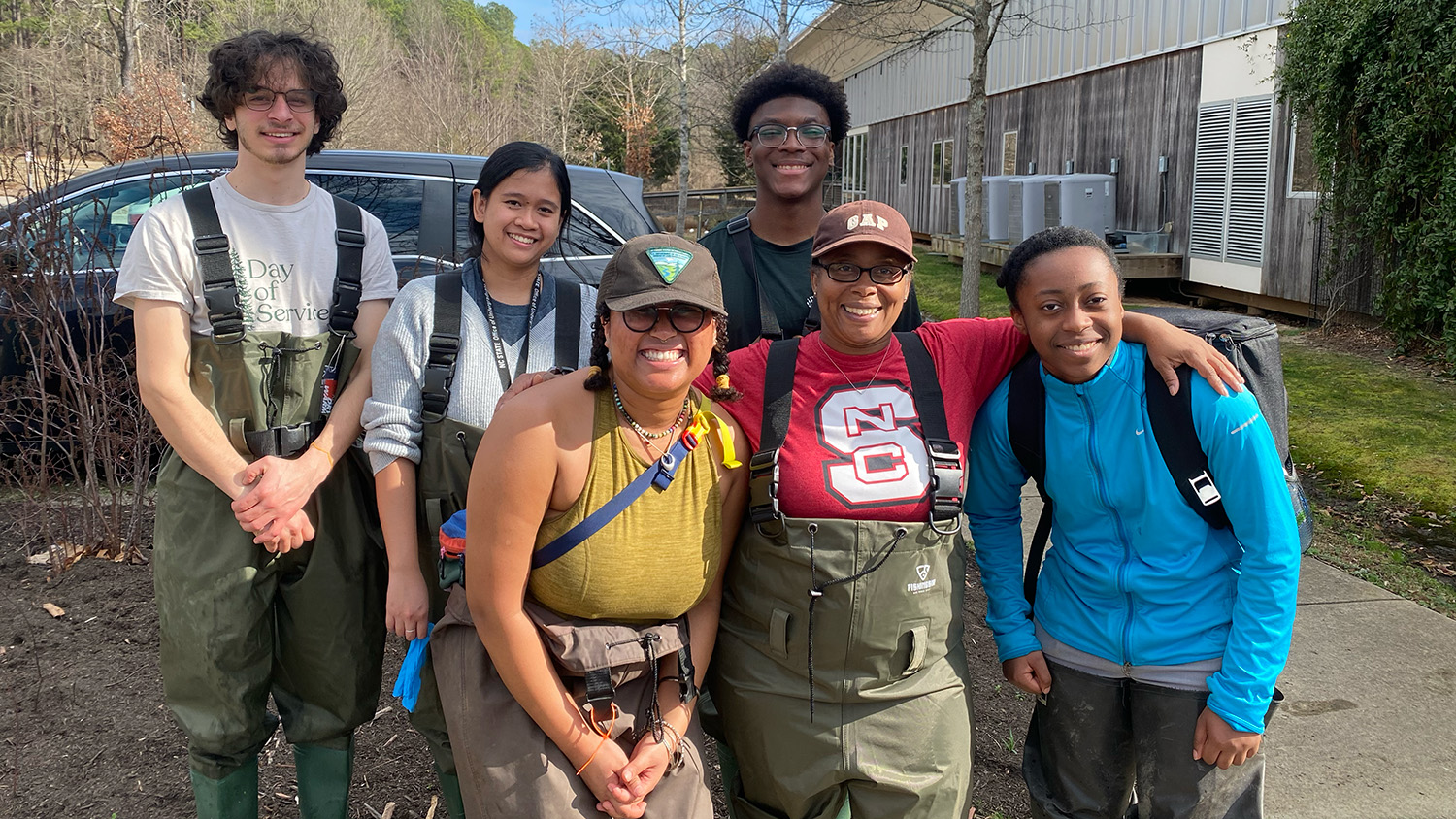Celebrating Black History Month in the College of Natural Resources

This year, NC State is celebrating Black History Month by honoring the legacies, histories and contributions of all Black people, rather than only focusing on leaders in the United States. The university’s theme for this celebration is “Our Wings Still Fly: the Beauty and the Burden of Blackness.” You can see a full list of events here.
To get a unique perspective on this, we spoke with Sam Cook, one of the first Black students in the College of Natural Resources, and Milton (Mickey) Fearn, a professor within Parks, Recreation & Tourism Management. Mickey has more than 50 years of experience working on diversity and inclusion within natural resources.
Creating Change in North Carolina
From his first job out of college studying why Black and Hispanic populations didn’t visit state parks to working as a professor of practice in the College of Natural Resources, Mickey has dedicated his life to diversity within natural resources. He was also the Deputy Director of the National Park Service during the first Obama administration where he focused on youth development, policy, inclusion and more.
In recent years, Mickey has worked with local officials to develop city park and recreation plans that are inclusive of people of color, like Greensboro’s master plan, Plan2Play. His goal is to encourage people of color to become familiar with nature while utilizing the city’s available resources.
Additionally, Mickey was instrumental in starting the Neighborhood Ecology Corps, which encourages middle and high school students of color in Raleigh to start ecology work in their neighborhoods. Rather than simply taking students on a field trip to a state or national park and showing them something they won’t experience again, Mickey wants to inspire students to apply the lessons they learned from the parks right in their own backyards.
“All of us have a gift. Any urban people of color who have a gift that’s related to this kind of work will have a very difficult time identifying they have that gift. Because there’s nothing they come in contact with, there’s no one to connect them with. So, that’s why I do this.”
The Results
Several years after beginning this work with middle school students, the students are about to graduate high school. Overall, their grades have improved, especially in science, and they are more likely to consider ecology and natural resources as career paths.
Black History, Black Present
Read our conversation with Sam Cook to learn more about the experiences and contributions to the natural resources field our staff has had.
Sam Cook – Executive Director of Forest Assets and Vice President of the Natural Resources Foundation
- First attended NC State in 1982, graduated in 1985
- Major: Forestry
What was it like being one of the first African Americans within CNR? What challenges did you face?
Separate and alone but welcome by some. Not prepared for a large university and the programs. Did not have funding to pay for school so I borrowed money and worked my entire time in college. Did not have a lot of free time to enjoy college life and study like other college kids. I struggled significantly during my first 1.5 years.
Since first enrolling in CNR, how do you think your industry has changed for people of color?
We continue to work to grow enrollment in forestry for people of color but do not seem to make a lot of headway over time, especially in the industry which is where my career landed me. The forest service or other USDA agencies seem to capture all the people of color when they leave college.
Can you please expand on the above question and discuss changes you’d like to see in the future concerning people of color and natural resources?
We need to do better when it comes down to recruiting. Need to go where people of color are located and attending schools. Need to speak to their parents and the children to educate them all on the many opportunities in forestry/natural resources. We need support systems in place to retain students and funding (grants, scholarships, etc.) to allow students more time to focus on studying and not working.
Please explain your current work with the communities of Raleigh and North Carolina. Please specifically mention any work involving people of color.
I work with churches, African American landowners (Sustainable Forestry and African American Land Retention Program) and African American students (middle, high school and college) to explain what I do and what a career in my field looks like. I run a Minority Landowner Professional organization where we meet monthly over breakfast or lunch to network and talk about our careers and new projects we tend to work on in the community. We support each other and students in college to help them stay career focused.
What does Black History Month mean to you?
To celebrate African American successes and freedom.
How has the racial climate evolved at NC State since you first started here?
We seem to have a more open environment as compared to my early years here. There is still room for improvement in certain colleges. I feel welcome and accepted now. I talk to a lot of students of color and they seem to tell me what they think about being here and most of it has always been positive.
What advice do you have for African American students interested in the College of Natural Resources?
To find others who look like them that is in the field and spend some time talking to us. Allow us to be mentors or coaches for their success!
Any other thoughts?
Keep asking people of color what they think and provide feedback to all of CNR about what you are hearing from these interviews.
- Categories:


